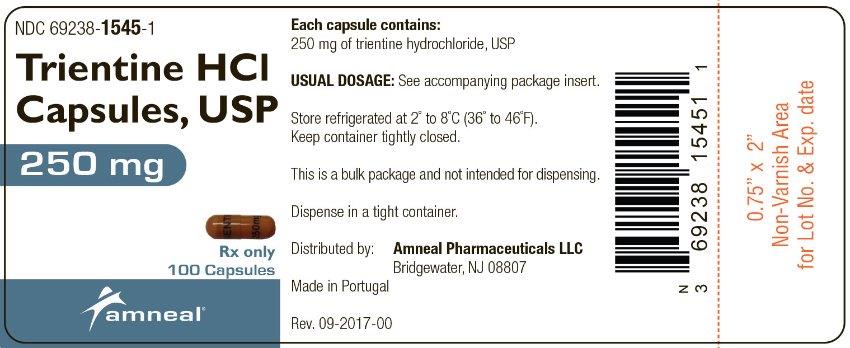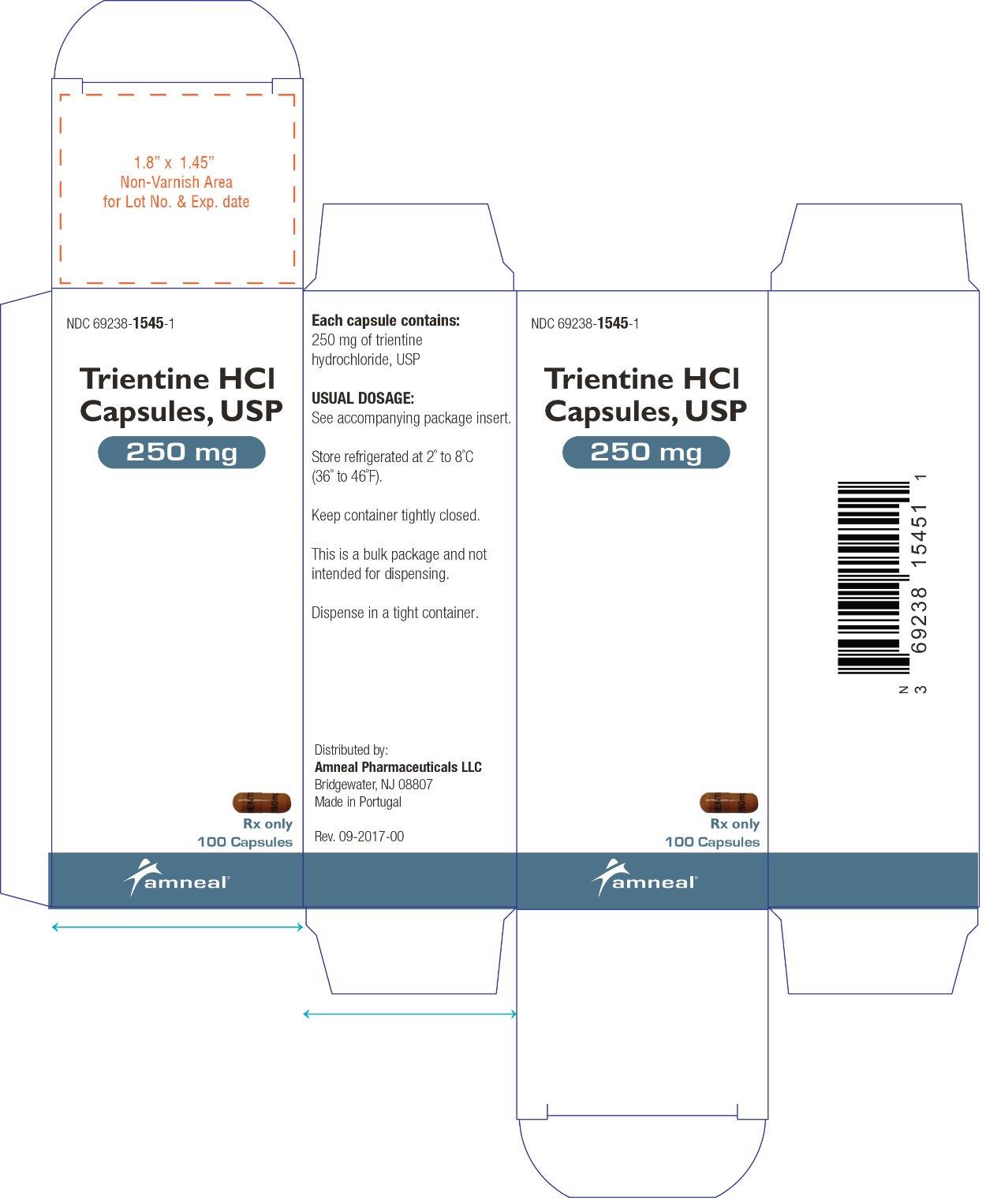
Trientine Hydrochloride | Trientine Capsule, Gelatin Coated while Breastfeeding
What is Trientine Hydrochloride | Trientine Capsule, Gelatin Coated used for?
Can I continue breastfeeding if I am using Trientine Hydrochloride | Trientine Capsule, Gelatin Coated? How long does it stays in breast milk?

Nursing Mothers It is not known whether this drug is excreted in human milk. Because many drugs are excreted in human milk, caution should be exercised when trientine HCl is administered to a nursing mother.
Trientine Hydrochloride | Trientine Capsule, Gelatin Coated Breastfeeding Analsys
Trientine hydrochloride while Breastfeeding
Low RiskCAS Number: 112-24-3
Copper chelator used in the treatment of Wilson's disease. It is excreted in breast milk in clinically insignificant amounts (undetectable levels: Izumi 2012). Copper and zinc levels in breastmilk of mothers treated with penicillamine, trientine or zinc are normal (Izumi 2012). Oral bioavailability, which is very low during periods of fasting, is practically non-existent in the presence of food, especially milk, so it would be very difficult to pass into the infant plasma from the ingested breast milk (PDR 2016).
Trientine Hydrochloride | Trientine Capsule, Gelatin Coated Breastfeeding Analsys - 2
Trientine hydrochloride while Breastfeeding
CAS Number: 112-24-3
Limited information indicates that trientine is not detectable in breastmilk. The effect of trientine on breastmilk copper and zinc concentrations in milk is conflicting,[1][2][3] but breastfed infants appear to have normal serum copper and zinc plasma levels. Based on available data, it appears that trientine is acceptable to use during breastfeeding.

I am nursing mother and I have already used Trientine Hydrochloride | Trientine Capsule, Gelatin Coated, what should I do?
Trientine Hydrochloride | Trientine Capsule, Gelatin Coated is in the category of low risk, if you have already used it then its not a big deal if health and behavior of baby is good. However your health care provider shall be aware of the fact that you have used Trientine Hydrochloride | Trientine Capsule, Gelatin Coated so you should inform him based on your convenience.
My health care provider has asked me to use Trientine Hydrochloride | Trientine Capsule, Gelatin Coated, what to do?
Though Trientine Hydrochloride | Trientine Capsule, Gelatin Coated dose not comes in category of safe drugs rather it comes in category of low risk but if your doctor is aware that you are breastfeeding your baby and has still recommended it then its advantages must be outweighing the risks.
If I am using Trientine Hydrochloride | Trientine Capsule, Gelatin Coated, will my baby need extra monitoring?
Not much monitoring required while using Trientine Hydrochloride | Trientine Capsule, Gelatin Coated
Who can I talk to if I have questions about usage of Trientine Hydrochloride | Trientine Capsule, Gelatin Coated in breastfeeding?
US
National Womens Health and Breastfeeding Helpline: 800-994-9662 (TDD 888-220-5446) 9 a.m. and 6 p.m. ET, Monday through Friday
UK
National Breastfeeding Helpline: 0300-100-0212 9.30am to 9.30pm, daily
Association of Breastfeeding Mothers: 0300-330-5453
La Leche League: 0345-120-2918
The Breastfeeding Network supporter line in Bengali and Sylheti: 0300-456-2421
National Childbirth Trust (NCT): 0300-330-0700
Australia
National Breastfeeding Helpline: 1800-686-268 24 hours a day, 7 days a week
Canada
Telehealth Ontario for breastfeeding: 1-866-797-0000 24 hours a day, 7 days a week
